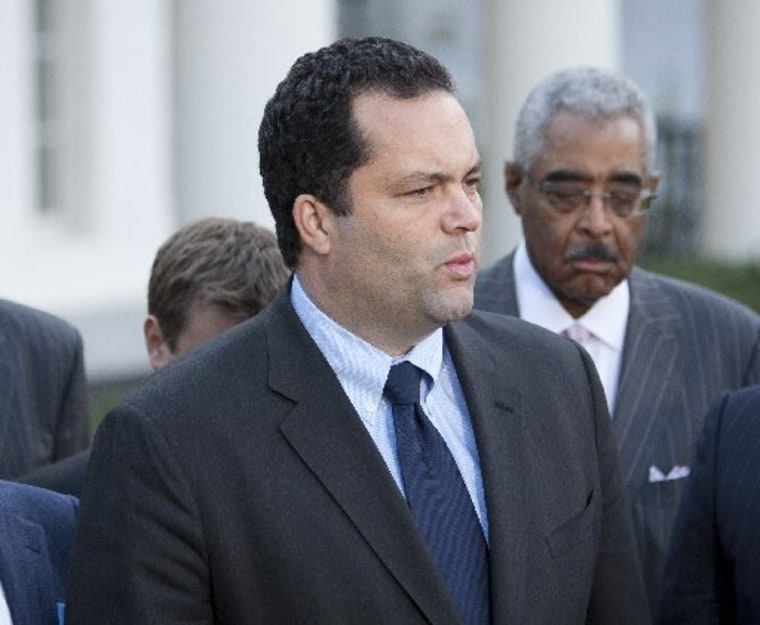A coalition of the largest labor unions, environmental groups and civil liberties organizations in America are banding together to combat policies they believe threaten all of them. On Wednesday, Mother Jones reported that the group of influential organizations had formed a "Democracy Initiative" with the intention of removing some of the biggest political roadblocks to progressive legislation.
The Democracy Initiative's platform, writes Mother Jones' Andy Kroll, has three major planks: "getting big money out of politics, expanding the voting rolls while fighting voter ID laws, and rewriting Senate rules to curb the use of the filibuster to block legislation."
Accomplishing those three goals, the group believes, would remove the biggest threats to American liberalism. Corporate influence over legislators, voter ID laws that target poor and non-white votes, and Senate rules which make it easy to block new legislation, the theory goes, all favor right-wing governance. As a result, groups as diverse as the NAACP, labor unions like the National Education Association, and the Sierra Club all see their interests under risk.
Kroll reports that the group would likely try to oust Senate Majority Leader Mitch McConnell, R-Ky., "Public Enemy No. 1 for campaign finance reform," when he runs for reelection in 2014. The group may also target major corporate interests—such as Chevron and the members of the American Legislative Exchange Council—directly.
The ultimate shape of the Democracy Initiative's grand strategy remains to be seen. However, in its nascent form, the coalition invites stylistic comparison to its enemies on the right: the aforementioned ALEC, Americans for Prosperity, and other such groups. Like those organizations, the Democracy Initiative plans to bring together a diverse group with overlapping interests and play the "inside game" in an attempt to dismantle its opponents' political infrastructure. Conservative interests have had a lot of success in pushing game-changing legislation through state governments, targeting powerful members of Congress, and generally trying to undermine the most powerful left-wing organizations.
There is reason to be skeptical that liberals can win at the same game. Left and right are not symmetrical—political theorists such as Corey Robin argue that conservatism is, at heart, a defense of hierarchy and "the private life of power." The right excels at the inside game, in part, because they are the movement of the inside. Even if the Democracy Initiative could match its conservative counterparts in funding (an unlikely proposition given the liberal experience with fundraising for Super PACs), America's political elites will still overwhelmingly be drawn from the same cultural and ideological background as its business elites.
That is not to say there is no value for the left in lobbying legislatures and fighting electoral campaigns on the federal level. However, national progressive organizations often miss the other side of the equation: the left's biggest successes throughout American history have largely been the product of broad-based social movements. The civil rights movement of the sixties and the labor movement of the thirties certainly fought within the halls of power, but they're most visible campaigns were fought in those areas of life not usually considered "political": The workplace, the segregated diner, and so on.
Those fights were only possible because these movements recognized and fostered the link between seemingly abstract political issues and personal experiences of oppression. The whole concept of "social justice" is founded on this link. It remains unclear whether the Democracy Initiative has a clear theory of social justice, or whether it is even interested in social movement politics. If the coalition is interested in social movement politics, then it must be willing to engage with and grow local activism—to not just lead, but allow itself to be led, by local communities.
